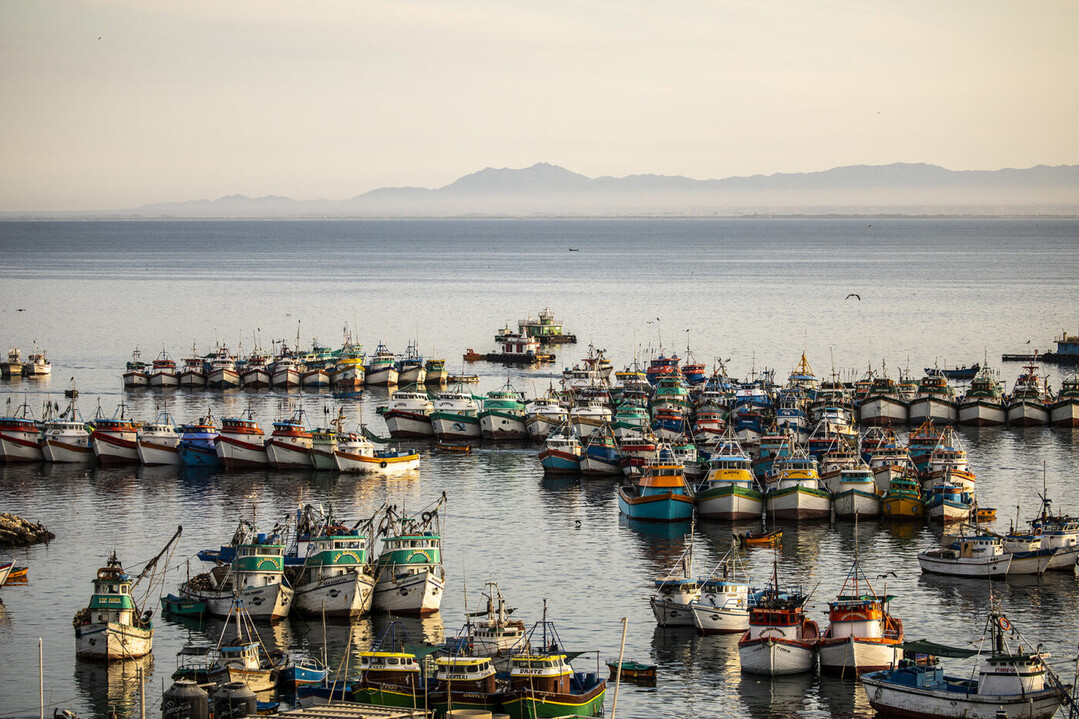
Paracas National Reserve, Peru - Tensions are rising in Peru as industrial fishing fleets encroach on protected marine reserves, threatening delicate ecosystems and the livelihoods of artisanal fishermen.
At the heart of the controversy is the Paracas National Reserve, a 335,000-hectare protected area that is home to a rich diversity of marine life. Carmen Arenas, a local woman who has made her living harvesting seaweed and fishing for decades, says that she has seen an increase in the number of industrial fishing vessels in the reserve in recent years.
"If we have anchovies, there are a good number of birds on the islands," Arenas said. "And if there are birds, there is fertilizer, which goes to the submarine meadow, where the algae are. But if there are no anchovies, the birds migrate and everything is affected."
Anchovies are a small fish that is a crucial part of the marine food web. They are the main prey of larger fish, sea lions, and seabirds. They are also the target of industrial fishing fleets.
The presence of industrial fishing in the Paracas National Reserve is illegal. However, the National Fisheries Society (SNP), a private trade organization, has been lobbying the government to allow industrial fishing in the reserve. The SNP argues that they have "pre-existing rights" to fish in the reserve, as they have been fishing there before the reserve was established.
Environmental lawyers argue that the SNP's claim is invalid. They say that industrial fishing is not compatible with a protected marine area.
In 2020, the National Service of Natural Protected Areas by the State (Sernanp) issued a report stating that there are only pre-existing rights for artisanal fishing in the Paracas National Reserve. The Sernanp has denied the SNP's request to fish in the reserve.
The SNP has filed a lawsuit against the Sernanp. The case is currently pending in court.
In the meantime, industrial fishing vessels have been illegally entering the Paracas National Reserve. According to the organization Artisonal, which monitors the Peruvian sea, industrial fishing vessels entered the reserve 99 times in 2020.
The Ministry of Production (Produce), which regulates fishing activity in Peru, has issued sanctions against 11 companies for illegally fishing in the Paracas National Reserve. Eight of the companies belong to the SNP.
The SNP argues that industrial fishing does not have a negative impact on the protected area. However, artisanal fishermen and researchers disagree.
"The industrialists are the ones who do the most damage to the environment," said José Hernández, a shellfish farmer who harvests scallops in the reserve. "The big nets affect the banks of this bivalve mollusk."
Manuel Barrientos, president of the Union of Artisanal Fishermen of the district of San Andrés, whose members fish in the reserve, agrees. "The vessels are large and their gear is also large, so they sweep everything on the bottom," he said.
Manuel Bartra, of the group Let's Protect Paracas, says that allowing industrial fishing in the reserve "is like putting a disco next to a school."
Biologist Carlos Zavalaga says that many birds, fish, and marine mammals depend on anchovy, the main catch of the industrial fleet, and that if it enters this ANP, "its interactions with these species will be harmful."
The controversy over industrial fishing in the Paracas National Reserve is part of a larger debate about the protection of Peru's marine resources. Peru has one of the richest marine ecosystems in the world. However, it is also facing increasing pressure from overfishing and other human activities.
The Peruvian government has recently created two new marine reserves, the Dorsal de Nasca National Reserve and the Mar Tropical de Grau National Reserve. However, both reserves allow industrial fishing. This has drawn criticism from environmentalists, who argue that industrial fishing is not compatible with the conservation of marine ecosystems.
Peru is a member of the International Union for Conservation of Nature (IUCN), which does not recognize marine protected areas where industrial fishing is allowed. Peru is also a signatory to the 2022 Montreal agreement, which calls for the protection of 30% of aquatic and terrestrial ecosystems by 2030.
The future of Peru's marine reserves is uncertain. However, the decisions that are made in the coming years will have a significant impact on the health of the country's marine ecosystems and the livelihoods of the people who depend on them.
[Copyright (c) Global Economic Times. All Rights Reserved.]




























